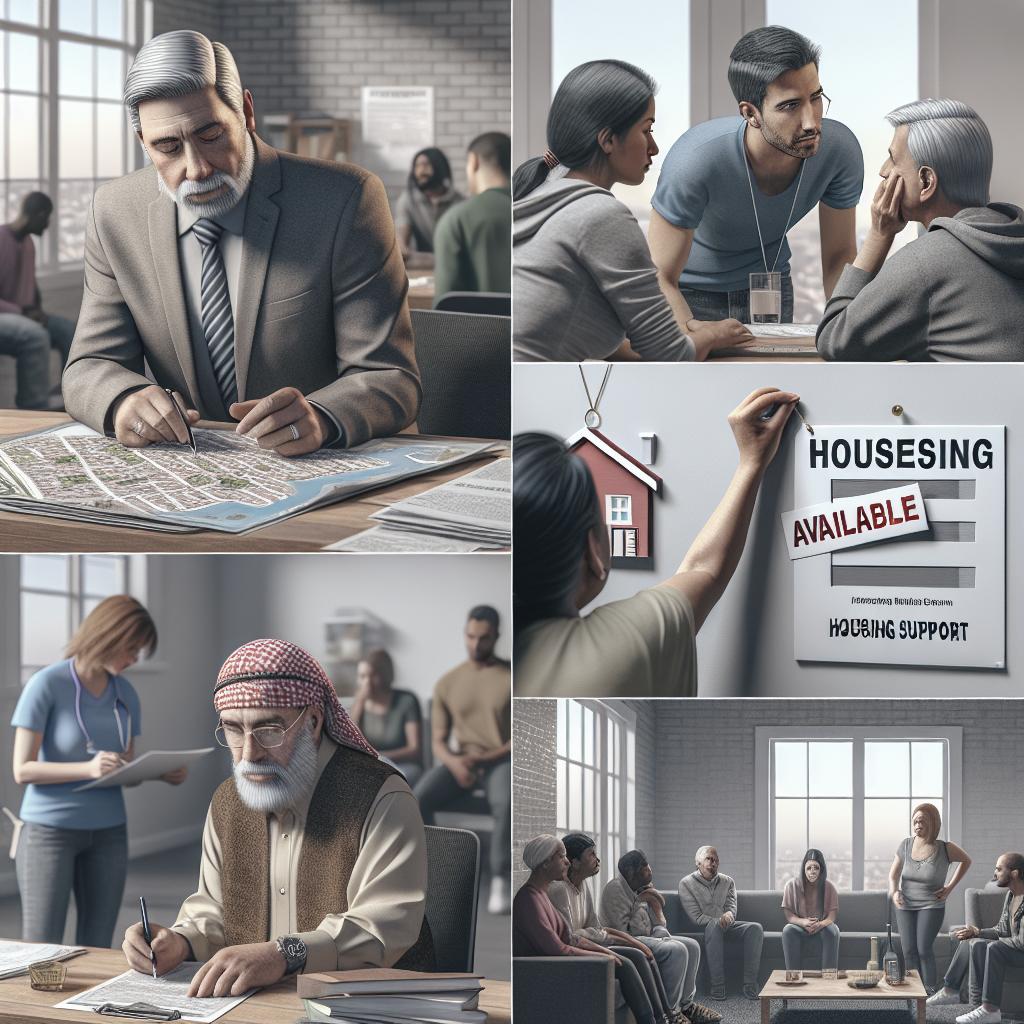### Introduction Around the world, transgender individuals face unique challenges when it comes to housing access and security. Discrimination, lack of legal protections, and social stigmatization can shape a transgender person’s ability to find safe, affordable, and welcoming housing. As discussions regarding transgender rights become more mainstream, it’s crucial to address the housing rights of transgender people and explore what protections and responsibilities exist to ensure equality in this essential aspect of life. In this blog post, we’ll explore the complexities of housing rights for transgender individuals by discussing procedural and substantive duties, underlying principles of these rights, and the roles and responsibilities that come into play for landlords, policymakers, and the community. ### Overview Transgender individuals often encounter barriers in securing appropriate housing due to discrimination and a lack of understanding or acceptance from landlords or housing authorities. While progress has been made in some countries to enforce housing rights for transgender people, significant gaps remain globally. Housing rights include the right to access housing without discrimination, the right to a safe living environment, and the right to legal recourse if these rights are violated. Multiple countries and regions have frameworks intended to protect the housing rights of all citizens, including transgender individuals. These laws often integrate anti-discrimination provisions specifically addressing sexual orientation and gender identity. However, their enforcement can be inconsistent, and awareness of these rights varies among both property owners and transgender individuals. Educational campaigns and advocacy can play a vital role in improving compliance and understanding of transgender housing rights among stakeholders. By increasing awareness, the barriers that transgender people face within the housing market can be reduced, fostering more inclusive communities. ### 8.1 Procedural and substantive duties Procedural duties in the context of housing rights refer to the legal processes and mechanisms that protect individuals from discrimination. For transgender people, procedural protections often include access to filing complaints against discriminatory landlords or housing policies and the right to engage in fair housing negotiations. These duties ensure that transgender individuals can challenge any housing discriminations they face. Substantive duties, on the other hand, involve the actual rights and entitlements that individuals hold under the law. For transgender persons, these substantive duties could manifest as the right to access public and private housing without facing bias based on gender identity. It’s crucial that these duties are legally binding and enforceable, allowing transgender individuals to seek redress and adequate protections under the law. In many jurisdictions, housing laws mandate specific non-discrimination tenants, ensuring landlords adhere to equitable practices. However, the strength and clarity of these laws can vary, which impacts their effectiveness. Robust legal frameworks are therefore essential in safeguarding transgender individuals’ housing rights, necessitating continuous evaluation and adaptation to cater to evolving social and legal landscapes. ### 8.2 Principles Several fundamental principles guide the housing rights of transgender individuals, beginning with equality and nondiscrimination. These principles assert that gender identity should not influence one’s ability to access housing and should be treated on par with other protected characteristics, such as race or religion. The principle of dignity is equally significant, stressing that transgender people should live free from discriminatory harassment or hostility. Safe housing environments are crucial in respecting the personal dignity of transgender residents. Therefore, housing policies must focus on creating environments where transgender individuals can thrive without fear of prejudice. Another cornerstone is the principle of accessibility. Housing should be affordable and available to all, without undue barriers created by stigma or discriminatory practices. This principle calls for proactive measures to eliminate systemic barriers and provide equal housing opportunities, thus ensuring the holistic inclusion of transgender individuals in all facets of the housing landscape. ### 8.3 Roles and responsibilities Understanding who is responsible for upholding housing rights is pivotal in ensuring these rights are respected and implemented effectively. Landlords and housing authorities play a vital role as they are on the frontline of implementing nondiscriminatory policies and providing a welcoming environment for all tenants, regardless of gender identity. Government bodies, policymakers, and legal institutions have a responsibility to craft and enforce laws that protect the housing rights of transgender individuals. This includes creating clear statutes that prohibit discrimination and providing accessible legal recourse for victims of housing discrimination. Continuous training and awareness campaigns for stakeholders are key elements in these efforts. Furthermore, advocacy groups and civil society have a responsibility to amplify the voices of transgender individuals and advocate for more comprehensive protections within housing systems. They can also act as intermediaries to provide education and assistance to those affected by housing discrimination, ensuring they have the tools necessary to navigate these challenges. ### Next Steps Below is a summary table outlining the different aspects discussed regarding housing rights for transgender people: “`html
| Aspect | Description |
|---|---|
| Procedural Duties | Legal processes to protect against housing discrimination; includes filing complaints and fair negotiations. |
| Substantive Duties | Rights under the law to access housing without bias based on gender identity. |
| Equality and Nondiscrimination | No influence of gender identity on housing access, similar protection as other characteristics. |
| Dignity | Freedom from harassment and hostility within housing environments. |
| Accessibility | Ensuring housing is affordable and available, eliminating systemic barriers. |
| Roles of Landlords | Implementing nondiscriminatory policies and providing welcoming environments. |
| Government Responsibilities | Crafting and enforcing protective laws, ensuring legal recourse. |
| Advocacy Groups | Amplifying voices and providing education/assistance to those affected by discrimination. |
“` Understanding these housing rights and the roles involved is crucial in promoting equality and fostering a society where transgender individuals can live openly and safely. It calls for a concerted effort from all societal sectors to ensure these rights are not only recognized but also implemented effectively.


